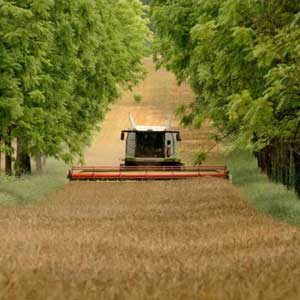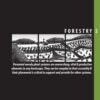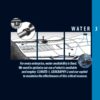For Curious Minds 🧠
Handbook Outline
The sections of the 4•Access chapter are as follows:
Introduction to the Access Layer
4.01 – Applying the Access Layer
ROAD DESIGN:
4.02 – Design Process
4.03 – Assessment
4.04 – Concept Design
4.05 – Risk, Impact, Mitigation
4.06 – Field Reconnaissance
4.07 – Road Types and Class
4.08 – Alignment
4.09 – Curvature & Coordination
4.10 – Design Speed & Stopping Distance
4.11 – Road Network
4.12 – Road Width
4.13 – Surface Design
4.14 – Drainage
4.15 – Crossing Types & Location
4.16 – Culvert Crossings
4.17 – Bridge Crossings
4.18 – Ford Crossings
4.19 – Fish Passage Design
4.20 – Debris Control
4.21 – Detailed Design & Analytics
4.22 – Headlands
4.23 – The City Forest
ROAD CONSTRUCTION:
4.24 – Contractors
4.25 – Equipment
4.26 – Timing
4.27 – Surveying
4.28 – Clearing & Stripping
4.29 – Subgrade Suitability
4.30 – Grading
4.31 – Slope Stabilisation
4.32 – Compaction
4.33 – Surfacing
4.34 – Surface Drainage
4.35 – Subsurface Drainage
4.36 – Culvert Crossing Installation
ROAD MAINTENANCE:
4.37 – Maintenance Planning
APPENDIX:
4.1 –Road Works Typology
4.2 – Components to Consider in Sensitive Areas
4.3 – Penetrometer Conversion Chart for Equivalent CBR
4.4 – Priority Decisions for Installation of New In-stream Structures
4.5 – Flood Occurrence Intervals & Water Table Culvert Spacing
4.6 – Pavement and Subgrade Stabilisation
4.7 – Gravel Coverage (depth per width of road)
4.8 – Gravel Spreading Rate per Truckload
4.9 – Speed/Curve Radius Relationship & Talbot Formula
4.10 – Manning’s Roughness Coefficient for Channels (n)
4.11 – Order of Works Assessment Checklist
4.12 – Field Reconnaissance Survey Checklist for Access
References & Further Reading
Glossary





